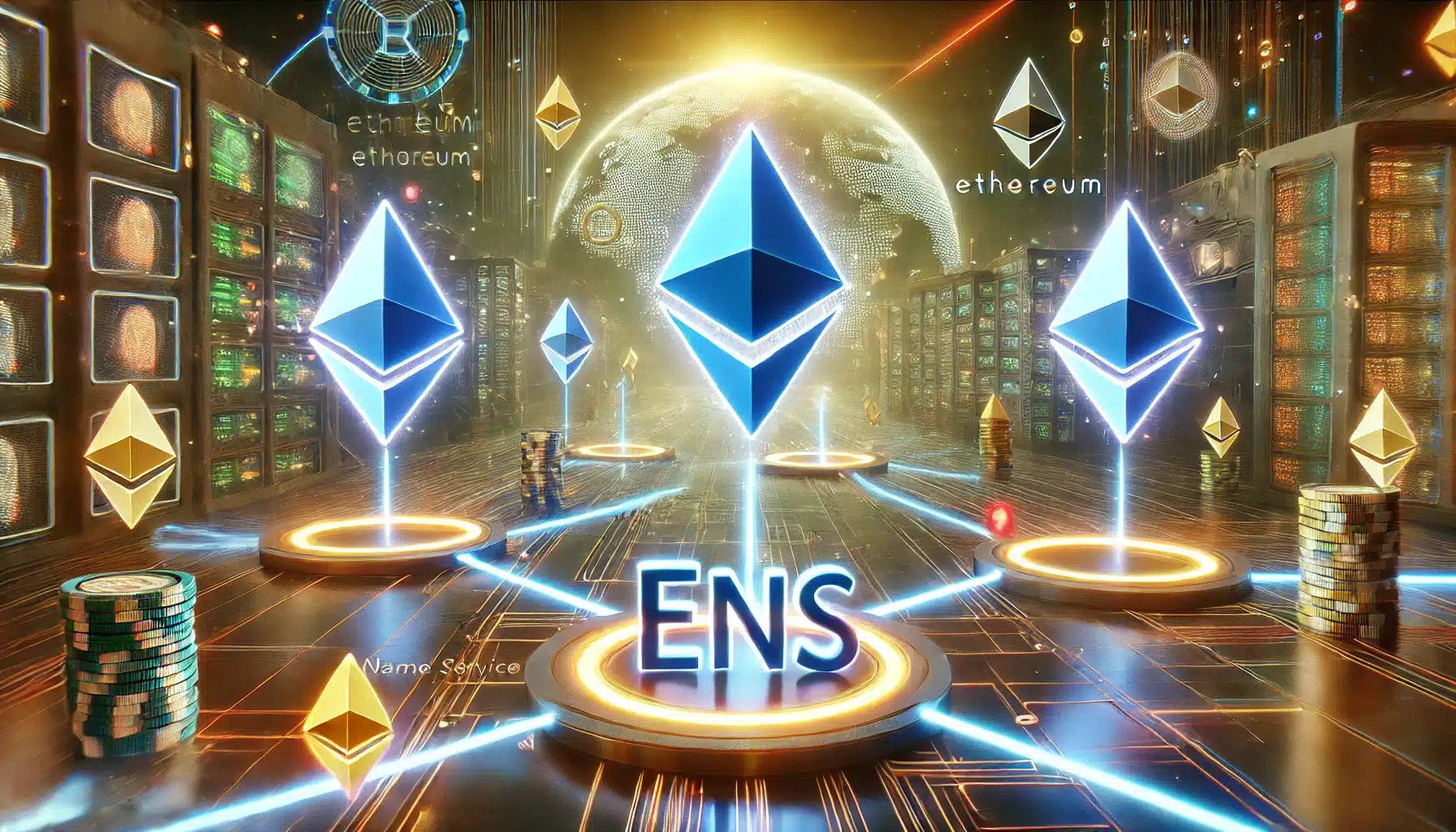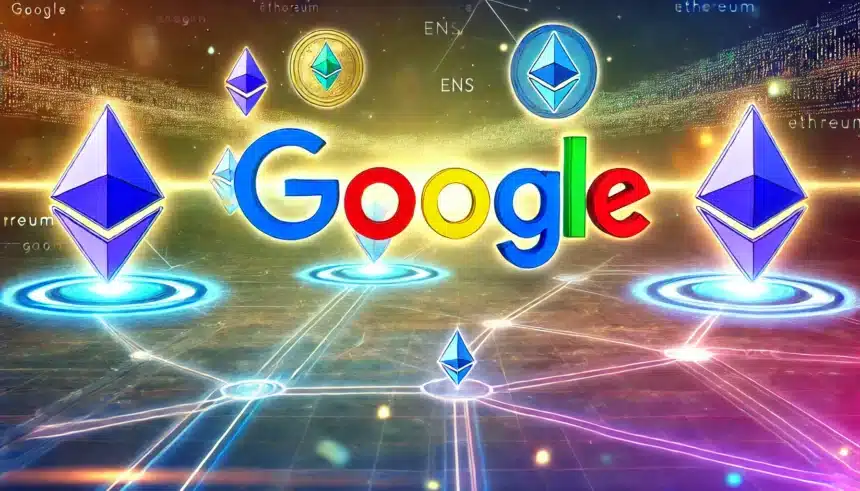In a landmark move, Tech Giant Google has integrated Ethereum Name Service (ENS) into its search engine to facilitate the accessibility of cryptocurrencies into the mainstream.
Google Cloud Web3 Product Manager Nalin Mittal announced the change on Wednesday, October 9, 2024. The move will enable users to search for names using .eth aliases via Google search and view associated balances directly within the browser. It follows Google’s 2023 update, which enabled crypto users to check their balances and search their Ethereum addresses.
The Ethereum Name Service, or ENS, is a decentralized domain name system that turns a user’s complex Ethereum address into a human-readable name. Users can link their Eth name to an Ethereum wallet address, smart contract, any decentralized website, or other related digital assets. This move allows Google to retrieve data from Etherscan and display its ENS information in real-time to a user within the search results.

How the Integration Works
Before the new integration, users needed specialized software or a blockchain-based browser to access their Ethereum domains. Users without much knowledge of blockchain technology gave up because they found the process rather long, limiting accessibility. With the new development, users will search AND domains directly via the Google search bar and seamlessly access any blockchain-based website. By typing in an ENS domain such as username.eth into Google, users will be directed to the related Web3 content, eliminating the arduous process requiring specialized access.
The incorporation of Ethereum Name Service into Google will now enable users to interact with many other blockchain-based services, making exploring the potential of Web3 and other decentralized applications accessible to new users. This move by Google, however, isn’t the first time Ethereum-based domains are coming into Google Search. The tech giant started interacting with Ethereum-based domains and Ethereum addresses as early as May 2023 in a move that wasn’t publicly announced.
Unite Web2 and Web3
Later, in March 2024, the Ethereum Name Service announced another strategic partnership last February with domain registrar GoDaddy to enable users within the Web3 community to link their .eth names with Web2 domains. The move allows users to reduce the high gas barrier that had made the service out of reach for most users interested in adopting the ENS. The service is equivalent to an internet domain that enables a user to simplify a complex Ethereum wallet address into a form that’s easy to remember. For example, instead of a user sharing the long string of alphanumeric characters as their wallet address, they need to give out the Ethereum address instead in the form of their name. eth.
Integrating the Ethereum domain service into the Google search engine is a big win for the burgeoning crypto industry, especially as it fights to gain acceptance into the mainstream. As the updated domains continue listing in the giant search engine, users can access blockchain-based information seamlessly without going through third-party websites. The move also significantly moves the blockchain industry closer to uniting Web2 and Web3 as it will eliminate barriers that block non-tech-savvy newcomers.

Conclusion
There’s already a lot of evidence showing that Ethereum name service domains are slowly becoming accepted into the mainstream, seeing that platforms like Venmo and PayPal already support them. This incorporation will enable millions of users to seamlessly send and receive cryptocurrencies using simple .eth addresses and easily remembered names instead of the traditionally long crypto wallet addresses.
By supporting the Ethereum domains, US payment service providers PayPal and Venmo have given the service a much-needed vote of confidence, making cryptocurrencies accessible to people for everyday use. As crypto adoption grows, the Ethereum name service is poised to transform how people manage their digital assets and potentially allow them to turn their digital wallets into personal brands.
Stay updated with TheBit Journal by following us on Twitter and LinkedIn and joining our Telegram channel.





























